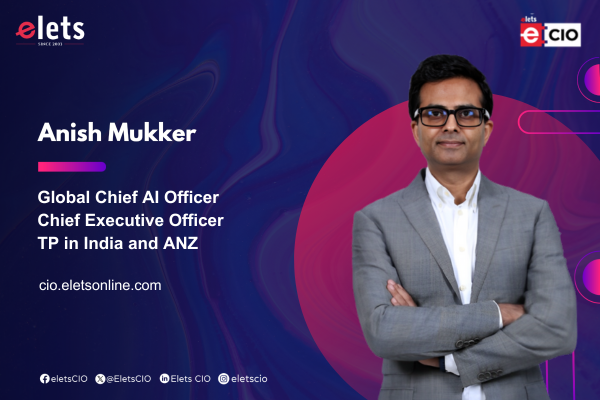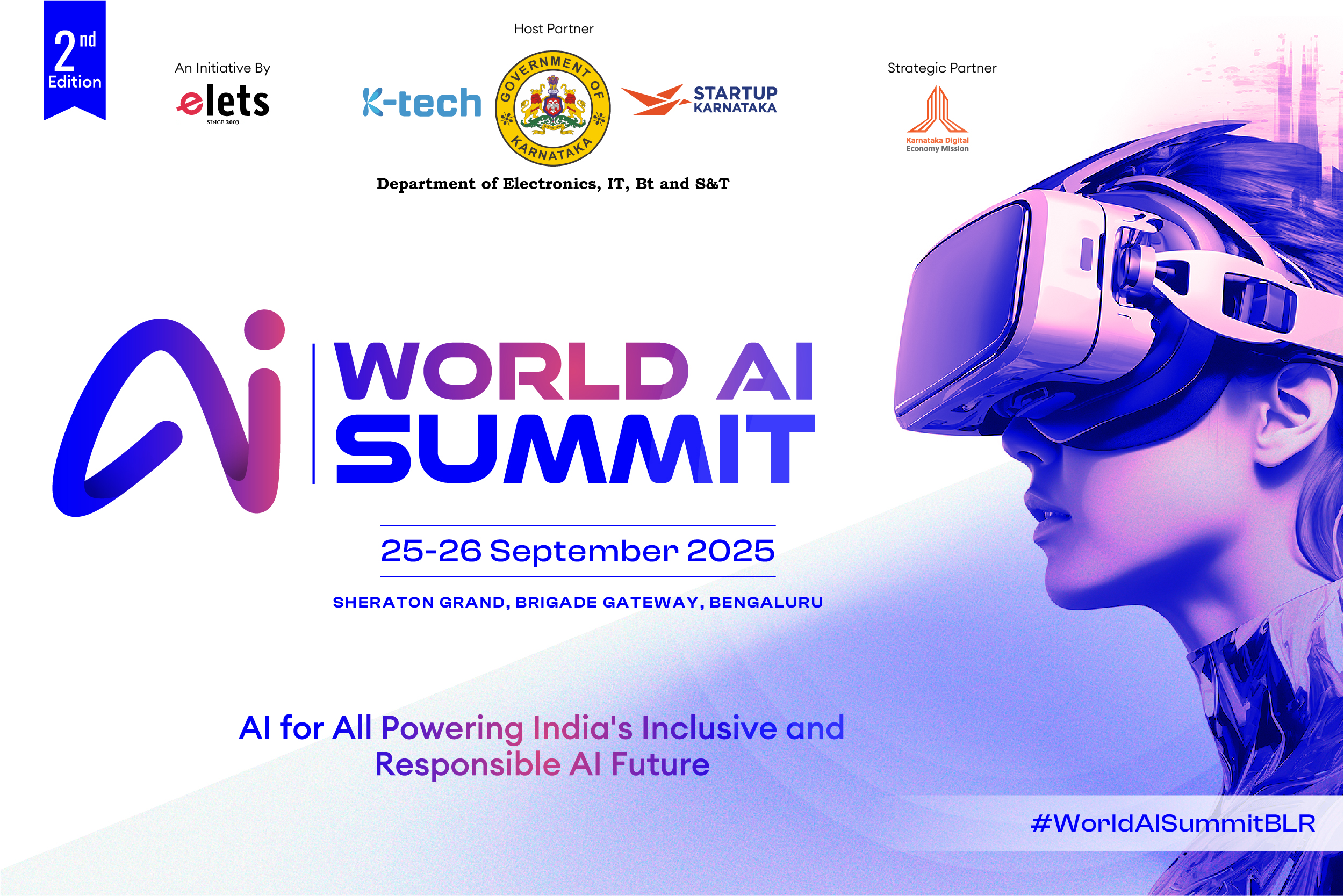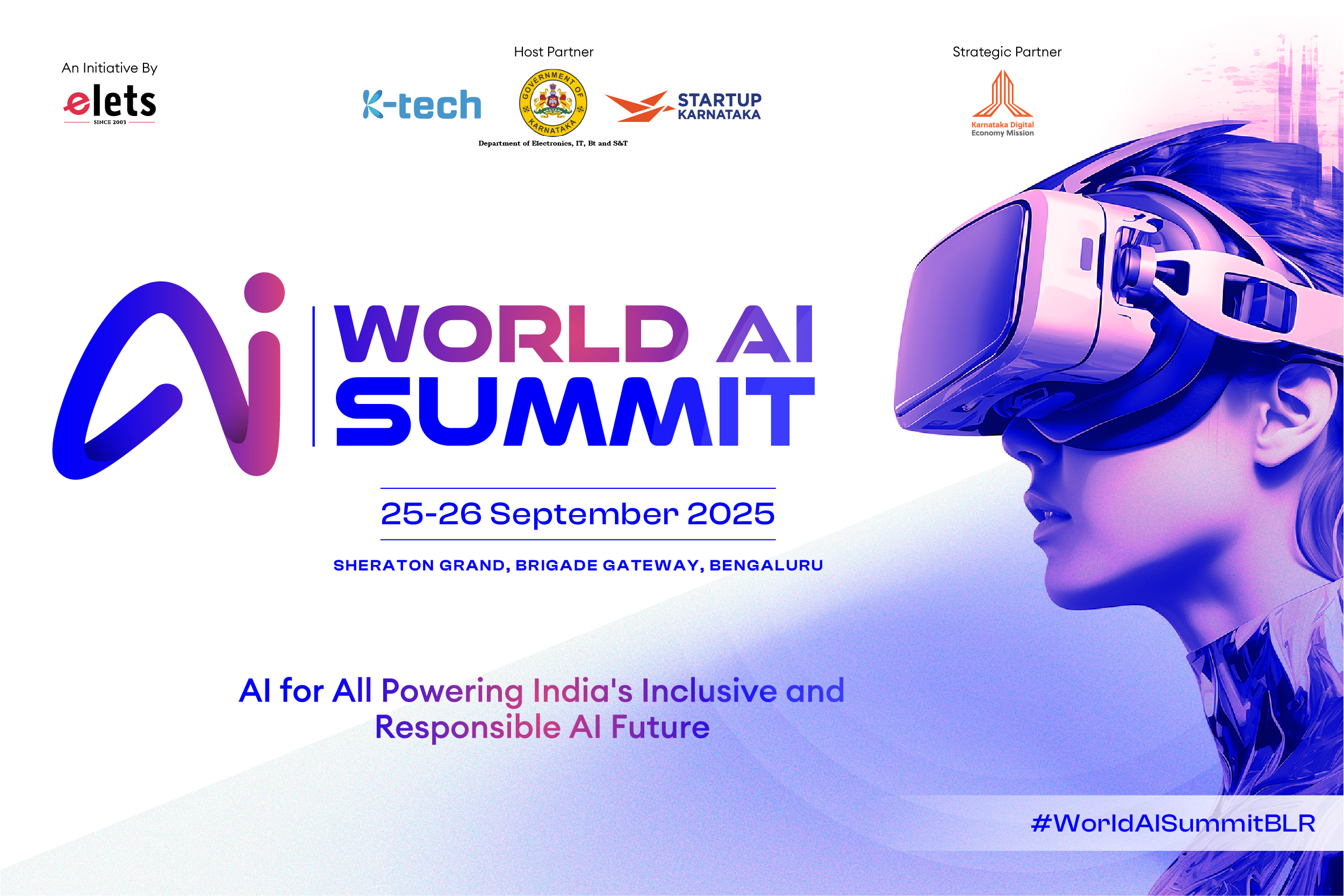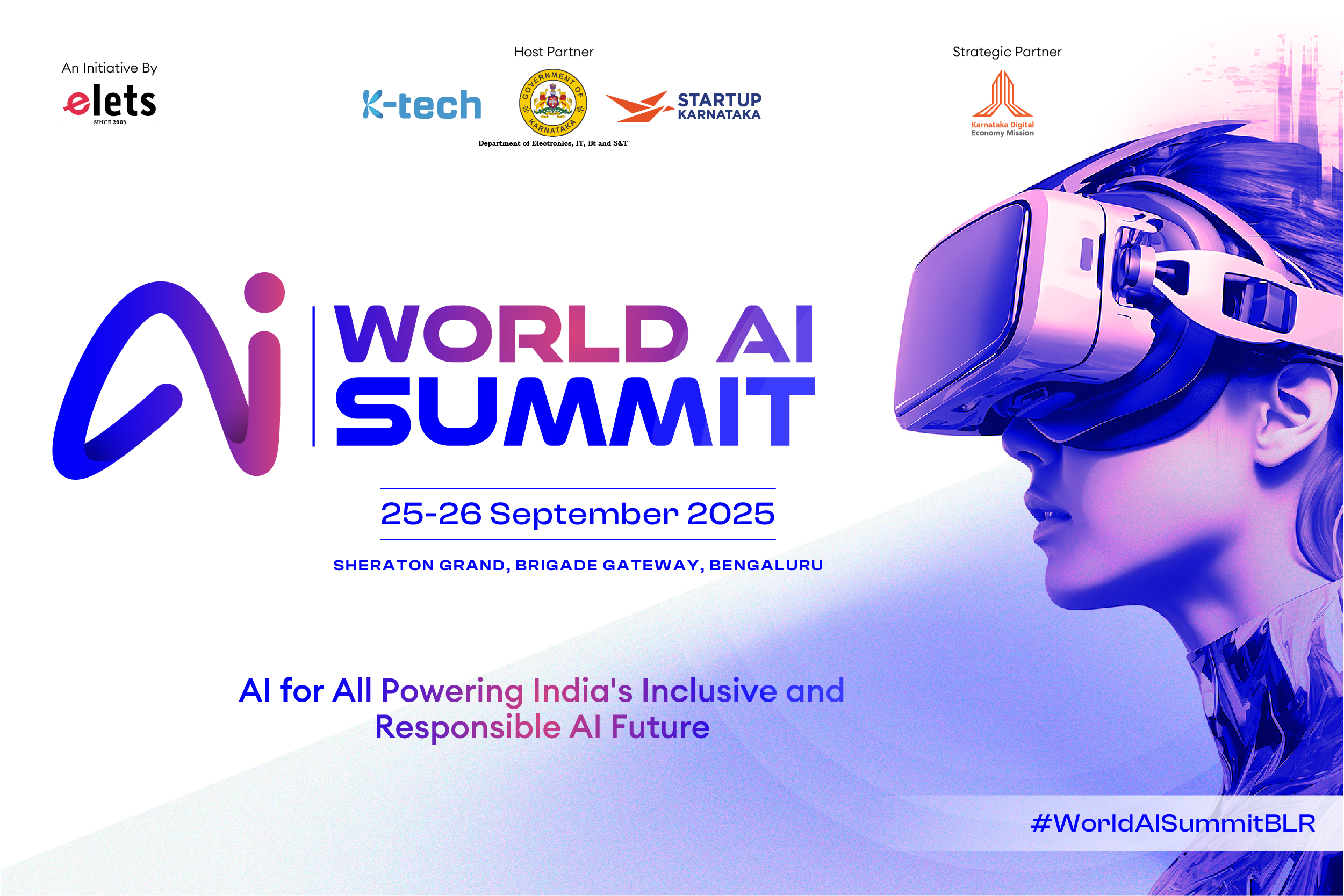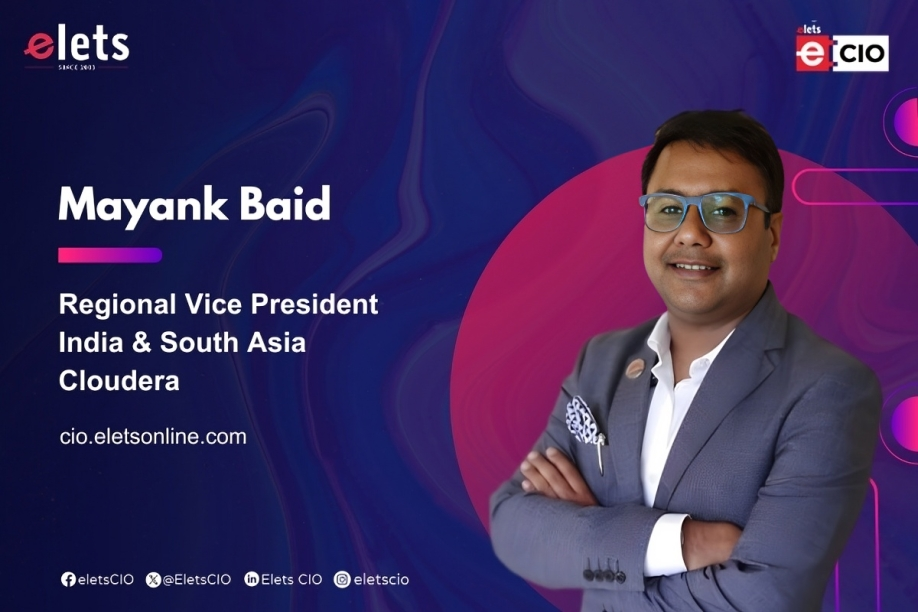
AI is transforming how digital natives operate and compete in today’s fast-changing world. It helps businesses automate processes, analyse data, and improve customer experiences. Companies use AI to personalise services, streamline operations, and make faster decisions. In industries like finance, retail, and technology, AI-powered tools are making workflows more efficient and enhancing customer interactions. However, using AI responsibly is essential, ensuring compliance with data protection rules and ethical practices.
The 3rd Digital Natives Summit saw industry leaders come together to discuss the transformative role of AI in maintaining competitive advantage, with a special focus on leveraging AI to innovate, enhance customer experiences, and navigate evolving regulations.

AI-Driven Personalisation and Compliance

Gaurav Duggal, Senior Vice President and Head of Data Analytics at Jio Platforms Limited, opened the discussion by highlighting the integration of Generative AI (Gen AI) in their operations. Duggal explained, “When you onboard with us, you’ll experience a seamless, dynamic AI-powered journey through video KYC. Plus, our chatbot in the Jio App, proficient in 22 domains and 10 languages, has been enhancing customer interactions for over six years.”

With advancements in Gen AI, Jio has taken steps to personalise campaigns for Kirana stores and generate AI-powered video content. However, Duggal emphasised the importance of compliance, especially under India’s forthcoming Data Protection and Digital Privacy (DPDP) Act. “As custodians of data, we’re committed to compliance and ethical practices, especially with the upcoming DPDP Act. This ensures data localisation, robust transfer protocols, and a secure future for your information,” he said.
AI and India’s Digital Revolution
“The stage is set for India to usher in a new era of innovation and leadership in AI,” said Rajeev Belani, Chief Technology Officer at Moneycontrol, while reflecting on India’s unique position to lead AI innovation due to its history of successful public-private partnerships.
“India, with its strong history of successful public-private partnerships (PPP) in digital initiatives like India Stack, Aadhaar, and UPI, is uniquely positioned to lead this revolution,” Belani noted. He stressed that similar partnerships across sectors could address ethical and regulatory challenges associated with AI.
AI has fewer barriers compared to earlier technological shifts, making it an open field for innovation, Belani concluded.
Merging AI with Human Expertise
“Whether it’s launching new products or services, AI plays a pivotal role in driving progress,” said Sampath Manickam, Chief Technology Officer of the National Stock Exchange. He shared insights on combining AI with human intervention, adding that while AI enhances operational efficiency and decision-making, human expertise ensures the reliability and impact of these advancements.
Manickam stated that the synergy between AI and humans is pivotal, especially in industries requiring high-stakes decision-making. “From ensuring smooth automation to rigorously testing new solutions, human intervention complements AI to deliver reliable, impactful outcomes. Together, they create a synergy that revolutionises possibilities across industries,” he added.
Responsible Technology and Accountability
Aditya Birla Capital’s Chief Technology Officer, Ramesh Narayanaswamy said, “At the end of the day, responsibility is key. Any technological solution must address critical considerations, and as the regulatory landscape evolves, it’s imperative to stay ahead. Whether it’s a chatbot or any AI-driven tool, adherence to rules and understanding the requirements are non-negotiable.”
Narayanaswamy the necessity of collective efforts to create AI-driven tools that prioritise both innovation and compliance.
Empowering Through AI
Dispelling myths about AI replacing humans, Dipesh Karki, Co-founder and CTO of LenDenClub, said, “It’s not AI itself, but those who use it effectively and responsibly, who will drive change and stay ahead.”
Karki explained the challenges of adapting AI to India’s linguistic diversity and shared LenDenClub’s approach to bridging this gap. “To bridge this gap, we’ve developed internal automation tools that provide immediate responses through customer support systems, ensuring seamless communication across diverse linguistic needs,” he said.
He talked about the types of AI, breaking them into three categories:
- Artificial Intelligence (AI): Lightweight systems for specific tasks.
- Artificial General Intelligence (AGI): Adaptable systems like ChatGPT, capable of varied tasks.
- Artificial Super Intelligence (ASI): Advanced systems rarely used today.
Karki advised that AI should align with purpose and comply with data protection norms. “The key lies in leveraging AI efficiently, securely, and cost-effectively to maximise its transformative potential,” he concluded.
Building Safe and Strategic AI Policies
Suresh Shankaran, Senior Vice President at HDFC Bank, stressed the need for robust AI policies. “Every organisation must establish a clear AI policy as a starting point, complete with proper guardrails defining the intent and scope of AI use,” Shankaran said, adding that it is essential to manage AI-based solutions effectively.
HDFC Bank collaborates with external partners for AI solutions while ensuring in-house expertise to audit and evaluate these technologies. Shankaran said developing the necessary skills to audit and evaluate these technologies is equally important, as it ensures their safety, alignment and compliance with the objectives of the organisation.
AI-Driven Innovation in Insurance
In the life insurance sector, AI is transforming customer engagement. “Life insurance, as a category, is primarily push-based. While digital platforms facilitate transactions, many customers still require guidance and a little nudge to complete their journey,” explained Prasad Pimple, Executive Vice President at Kotak Life.
Pimple shared how Kotak Life uses AI-powered bots to analyse agent calls in real-time, providing instant feedback for quality improvement. “Using AI-powered bots, we analyze agent calls in real time, providing instant feedback on areas where improvements are needed. This ensures continuous quality enhancement and better customer interactions,” he said. The company is also exploring multilingual voice bots to make their services accessible to a broader audience.
“With AI driving innovation, we aim to redefine the life insurance experience,” he concluded.
AI Revolutionising Retail
Suman Guha, Chief Product Technology Officer at Tata CLiQ, talked about the challenges of discovery and search in the retail sector. “Finding the right product through the right channel at the right time is a significant challenge, especially in an omnichannel environment,” Guha noted.
He explained how AI has transformed search into an intent-based experience, making it easier for customers to locate relevant products. “With AI-driven innovations, we’re redefining how retail connects customers to their needs,” Guha said.
AI as a Catalyst for Economic Growth
Moderating the session, Suraj Shetty, Head of Customer Experience at Kissht, pointed to AI’s potential to drive India’s ambition of becoming a $5 trillion economy. “…AI will be instrumental in driving this transformation,” he said, adding that it will help personalise customer experiences, and create an environment fit for innovation.
He urged businesses to identify strategic areas where AI can add value and align these initiatives with broader goals. “With the right approach, businesses can harness AI not just as a tool but as a transformative force in shaping the future of the economy,” Shetty concluded.
As AI continues to evolve, the focus will shift toward integrating it into long-term strategies that go beyond operational improvements to address larger societal and ethical considerations. Businesses must prepare for a future where AI not only enhances their offerings but also aligns with the values and expectations of their stakeholders. This approach will help ensure that AI becomes a shared resource for creating value across industries and communities.
Be a part of Elets Collaborative Initiatives. Join Us for Upcoming Events and explore business opportunities. Like us on Facebook , connect with us on LinkedIn and follow us on Twitter.
"Exciting news! Elets technomedia is now on WhatsApp Channels Subscribe today by clicking the link and stay updated with the latest insights!" Click here!


